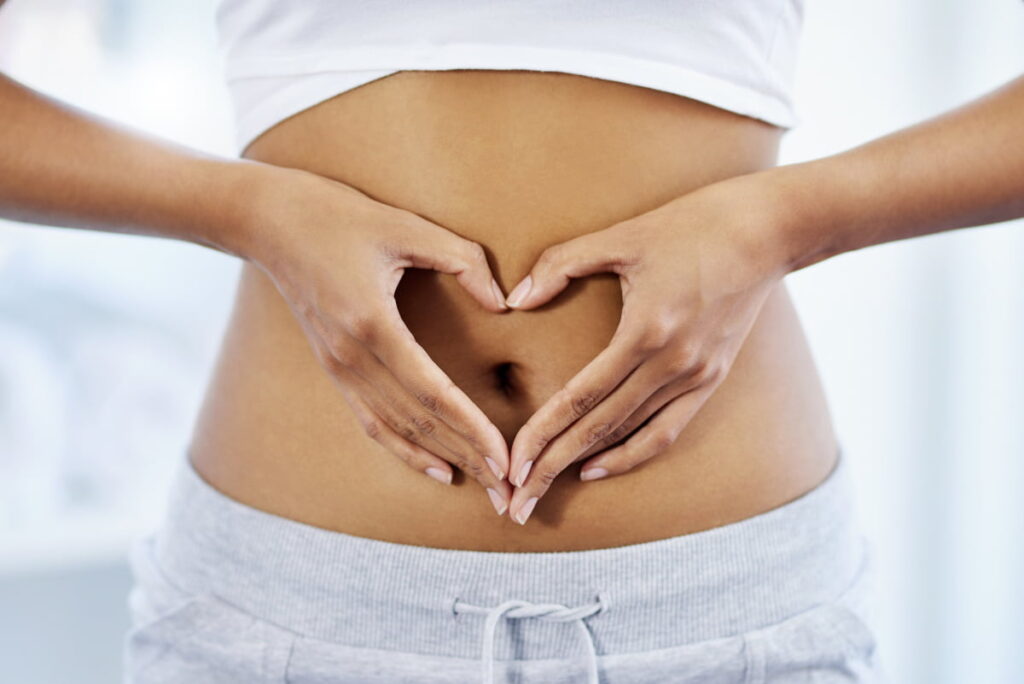“Listen to your gut.” “You are what you eat.” You’ve likely heard these expressions your whole life, but they may be more true than you ever realized. Until recently, the brain and digestive tract were considered separate physiological entities, operating independently of one another. But within the past few years, researchers have begun to make the connection between mental health and gut health.
Today we’ll examine how the brain and gut are related, and how you can optimize your gut’s microbiome to improve your mental and physical wellbeing.
What is the gut microbiome?
Your gut microbiome includes everything from your mouth to your colon, including your stomach, small and large intestines, and the thousands of species of microbes—bacteria, fungi, viruses, and cells—that live within these organs. (Fun fact: the amount of bacterial DNA in our bodies is 10 times greater than our own DNA!) A number of factors including diet, environment, and physical & mental health all influence, and are influenced by, our gut microbiome.
The relationship between gut health and mental health
Mental health disorders are on the rise. According to the CDC, more than one-third of Americans suffer from affective mental health disorders, including anxiety and depression. Between 2008 and 2017, the number of young adults who experienced serious psychological distress increased by a staggering 71%.
Simultaneously, obesity, diabetes, and heart disease have all increased dramatically over the past few decades as nutritious whole foods have been replaced with ultra-processed foods high in saturated fats and sugars.
Noting the synchronicity of these two seemingly unrelated trends, researchers are now making the connection between increased rates of mental health concerns and poor nutrition. In fact, many scientists now refer to the gut as a “second brain,” capable of influencing everything from mood to obesity. For example, people with irritable bowel syndrome are often depressed, people on the autism spectrum tend to experience digestive problems, and people with Parkinson’s disease are prone to constipation, according to Science Magazine.
The gut-brain axis: two-way communication
The gut communicates with the central nervous system (CNS) through a biochemical process known as the gut-brain axis. Since this communication is bidirectional (it goes both ways), not only can our gut health influence our mental health, but our mental health can influence our gut health. When you feel stress or anxiety in your stomach, this is the result of the gut-brain axis: your GI tract is experiencing inflammation due to signals sent there from your brain.
Mental health is influenced by the gut
A healthy gut microbiome is essential for your body to properly absorb nutrients and convert them into molecules that are critical for your overall health and wellbeing. Here are 3 molecules essential for brain health that your body gets from food:
- Tryptophan. Tryptophan is an amino acid found in foods including turkey, eggs, and chia seeds. Your body converts tryptophan into 2 key neurotransmitters: serotonin and melatonin. Simply put, serotonin is responsible for helping you feel happy, while melatonin helps you sleep. Without proper serotonin and melatonin levels in your brain, you’re more likely to be stressed out, fatigued, irritable, and depressed.
- Tyrosine. Your body converts tyrosine, an amino acid found in foods such as almonds, lentils, seeds, and edamame, into dopamine and epinephrine. Dopamine is a neurotransmitter that helps regulate mood and energy. Epinephrine, known more commonly as adrenaline, is the chemical responsible for our “fight or flight” instinct. A lack of tyrosine is often associated with lethargy, low motivation, and slow responsiveness.
- Indole-3-lactic acid. Indole-3-lactic acid (ILA) is an acid found in fermented foods like pickles, kimchi, sauerkraut, and nattō, and is converted into indole-3-propionic acid (IPA) in the gut. As one of the strongest antioxidants in the body, IPA helps neutralize free radicals that can cause tissue damage, premature aging, stomach and bowel cancers, and psychiatric disorders.
Why is good gut health dependent on eating healthy foods?
Eating healthily not only helps ensure your body gets the nutrients it needs to protect itself from illness and perform optimally, but it also helps your gut maintain a healthy microbiome. If your gut microbiome isn’t healthy, your body won’t be able to digest nutrients properly, creating a whole host of problems.
You can condition your gut microbiome
Thankfully, our gut microbiomes aren’t set in stone. By eating certain foods, you can actually condition your gut to produce the microbes needed to digest these foods. If, for example, you only eat foods that are high in fat, your gut bacteria that are responsible for breaking down fat will outcompete with other, more beneficial, bacteria. But, if you adopt a whole foods diet including plenty of vegetables, your gut microbes will adapt to digest these foods and even begin to crave them. According to a review in Clinics and Practice, diet alterations can have a significant impact on your gut microbiome in as little as 24 hours.
Making dietary changes can have a significant impact on your gut microbiome in as little as 24 hours.
A healthy gut starts with a diverse diet
Consuming a wide array of foods is important for cultivating a healthy gut microbiome. A study published in the journal Aging showed that eating a varied diet is associated with increased energy, healthy immune functioning, better mental clarity, and improved emotional wellbeing. A typical American diet, on the other hand, has been linked to obesity, type 2 diabetes, Alzheimer’s, and Parkinson’s.
A reduction in microbial diversity and the loss of beneficial bacteria can also cause leaky gut syndrome, a phenomenon where gut microbes and undigested food particles can leak through the intestines and into the bloodstream. Leaky gut syndrome has been associated with inflammatory bowel disease, diabetes, and asthma, as well as depression, anxiety, and autism.
What should you eat for a healthy gut microbiome?
So, you want to feed your gut’s microbiota healthy nutrients for optimal brain functioning—but what should you eat? Start with this short list:
Fruits and veggies
Emerging research supports that eating a variety of fruits and vegetables can provide your gut with most of the nutrients it needs to support a healthy microbiome. Apples, berries, grapes, and onions all contain phytonutrients that may increase serotonin and dopamine in the brain. So while we don’t recommend discontinuing any prescription medications, eating a variety of fruits and veggies every day can have significant improvements on your mental and emotional wellbeing.
Eating a variety of fruits and veggies every day can have significant improvements on your mental and emotional wellbeing.
Fiber
Eating foods that are high in fiber helps to assure you’re eating a diverse diet, since most whole foods contain high levels of fiber. Unfortunately in the U.S., only 1 in 20 people consume the daily recommended amount of fiber. Researchers have found that eating more fiber is associated with higher levels of beneficial bacteria in the gut responsible for breaking down fiber. When these bacteria digest fiber, they produce short-chain fatty acids (SCFAs), which have anti-inflammatory properties and are capable of reducing insulin sensitivity and appetite. Whole grains, beans, cruciferous vegetables, and dried fruit are all high-fiber foods.
Probiotic-rich foods
According to the Clinics and Practice review, probiotics have the ability to restore normal microbial balance and reduce inflammation in the GI tract. Because of this calming effect on the gut, researchers are interested in the potential role probiotics may have in the treatment and prevention of anxiety and depression. Though it doesn’t confirm whether or not probiotics can be used to treat these psychological disorders, a randomized controlled study published in the journal Brain, Behavior, and Immunity found that they may help reduce negative thoughts associated with feelings of sadness.
Until more research is published showing causation between probiotics and improved mental health, we don’t recommend relying on probiotics alone to treat any mental health disorders. That said, consuming probiotic-rich foods, like kimchi, kombucha, kefir, and nattō, introduces plenty of beneficial bacteria to your gut microbiome and is good for your overall health (plus, they’re super tasty!).
Omega-3 fatty acids
Omega-3 fatty acids are a type of polyunsaturated fat that can increase good bacteria in the gut and have anti-inflammatory effects in the body. Health experts have suggested that omega-3s may help reduce the risk of depression and protect against cognitive decline in the elderly. Omega-3 can be found in foods such as walnuts, flax seeds, and oily fish.
Please note: Be sure to talk to your doctor before taking any new supplements or making any significant dietary changes. Everyone’s bodies (and guts) are different, therefore not all foods are beneficial to all people.
Look and feel your best at Inland Cosmetic Surgery
We hope this information helps you make informed dietary and lifestyle decisions to optimize your health. If you’re in the Inland Empire and also want help looking your best, American Board of Cosmetic Surgery cosmetic surgeons Dr. Jacob Haiavy and Dr. Emma Ryan can help! Schedule a consultation with them online or call (909) 987-0899 to learn about your cosmetic surgery options.



